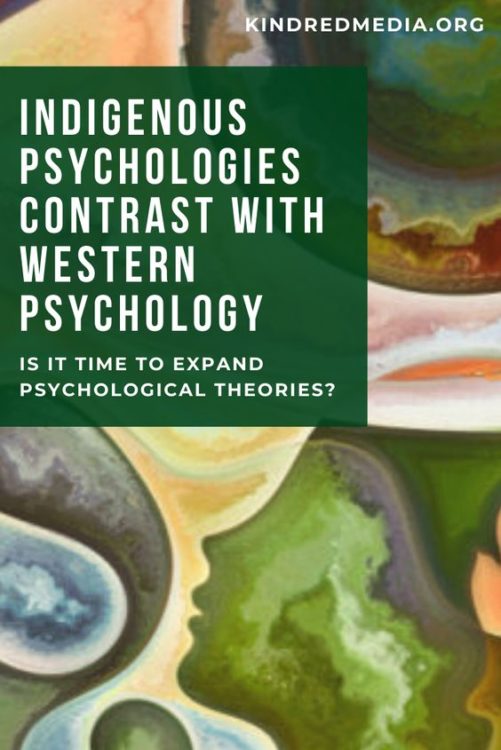We Are in a Climate Emergency—How Can Psychology Help?
Can psychology address the deeper psychological causes?
Reports of the planetary effects of global warming are increasing by the week (e.g., arctic warming, ocean oxygen depletion, glaciers melting). Indeed, climate scientists are grieving as the glaciers or animals they have studied disappear.
How should psychology be responding?
Few psychologists discuss the psychological causes of the climate emergency and sixth mass extinction humanity is causing (Kolbert, 2014). However, a few researchers do, such as Fisher (2013) and Koger and Winter (2010).” Psychologists that bring up the ecological devastation underway typically focus on adjusting to the inevitable (Buzzell & Chalquist, 2009). Why only a marginal response?
Psychology attempts to resemble a hard science with objectivity and a value-free orientation. But this is self-deceptive. Like most Western-rooted scholarship, psychology is dominated by cultural values, many of which turn out to be rare among human societies throughout history.
Author and educator C.A. (Chet) Bowers described how several root metaphors act like a straitjacket on thought and action. Other scholars (e.g., David Kidner, Caroline Merchant, Val Plumwood, Marshall Sahlins, Frederick Turner) also have pointed to the strange ideas (from the perspective of nonindustrialized societies) that emerged mostly from Western thought. The ideas don’t actually match up with the experiences of those in other societies, but are said to drive the environmental destruction that has been underway for several centuries from the “advance of civilization”:
- individualism
- self-interest
- linear progress of human civilization
- dualism (split of mind/body, human/nature)
- centrality and superiority of human beings
- positivism (the need for an experiment to know anything)
- belief in an insensate natural world
Look at how civilization defines itself in comparison to what it really does.
Urban Scout (a.k.a. Peter Michael Bauer) points out the dictionary definition of civilization:
An advanced state of intellectual, cultural and material development, marked by progress in the arts and sciences, the extensive use of record-keeping, including writing, and the appearance of complex political and social institutions (American Heritage Dictionary)
Then Urban Scout gives his own definition based on actual effects (that have led to the current crises and with which many of the aforementioned scholars agree):
A catastrophe created when a human culture practices full-time agriculture, causing their populations to spiral into a cycle of exponential growth, social hierarchy, soil depletion, and genocidal expansion that leads to an eventual collapse of ecosystems, biological diversity, and culture (Rewild or Die, p. 37)
We are facing these catastrophes on a planetary scale today.
Should psychology only help us adjust, as it has sought to do in the face of the harshness of industrialized life (deeply criticized by some, e.g., Kidner, 2003)? Or should it broaden its lens and advance our scope of understanding of how we got to this point? Should psychology instead be addressing our human nature holistically—how it comes about, how it is damaged or optimized, and how our culture shapes our perception and attention to the rest of the world?
Our cultures shape our minds and assumptions about the world. We are governed by the root metaphors of civilization.
We’ve been told that civilization, especially Western civilization, is progress. This is clearly not true from a planetary life perspective.
We have been told that humanity’s past was brutish, nasty, and short. But anthropological and archeological evidence say otherwise (Fry, 2006; Eisler & Fry, 2019).
Because of the dominating root metaphors, much of Western scholarship has had its head in the sand regarding the climate emergency. Psychology is no different.
To face the emergency means to address the deeper psychological causes, such as reversing a psychological sense of:
- Separation from nature
- Superiority to nature
- Nature as insentient
Instead, humanity’s future may depend on returning to the indigenous wisdom of our ancestors, understanding that:
- Humanity is part of Nature and dependent on it.
- Humans know some things but need to honor and support the lives and ecosystems in Nature outside of humanity.
- Nature is not full of objects but of agentic life.
Living with the Earth and Earth systems in mind may be key to humanity’s survival.
References
Buzzell, L., & Chalquist, C. (Eds.) (2009). Ecotherapy: Healing with nature in mind. San Francisco: Sierra Club Books.
Eisler, R., & Fry, D.P. (2019). Nurturing our humanity. New York: Oxford University Press.
Fisher, A. (2013). Radical ecopsychology: Psychology in the service of life, 2nd ed. New York: SUNY.
Fry, D. P. (2006). The human potential for peace: An anthropological challenge to assumptions about war and violence. New York: Oxford University Press.
Kidner, D. W. (2001). Nature and psyche: Radical environmentalism and the politics of subjectivity. Albany: State University of New York.
Koger, S.M., & Winter, D.D.N. (2010). The psychology of environmental problems, 3rd ed. New York: Psychology Press.
Kolbert, E. (2014). The sixth extinction: An unnatural history. New York, NY: Henry Holt.
Merchant, C. (1983). The death of nature: Women, ecology and the scientific revolution. New York, NY: Harper & Row.
Merchant, C. (2003). Reinventing Eden: The fate of nature in Western culture. New York, NY: Routledge.
Plumwood, V. (2002). Environmental culture: The ecological crisis of reason. London, England: Routledge.
Sahlins, Marshall. The Western Illusion of Human Nature: With Reflections on the Long History of Hierarchy, Equality and the Sublimation of Anarchy in the West, and Comparative Notes on Other Conceptions of the Human Condition. Chicago: Prickly Pear Paradigm Press, 2008.
Scout, U. (2016). Rewild or die: Revolution and renaissance at the end of civilization. Myth Media.
Turner, F. (1994). Beyond geography: The Western spirit against the wilderness. New Brunswick, NJ: Rutgers University Press.



